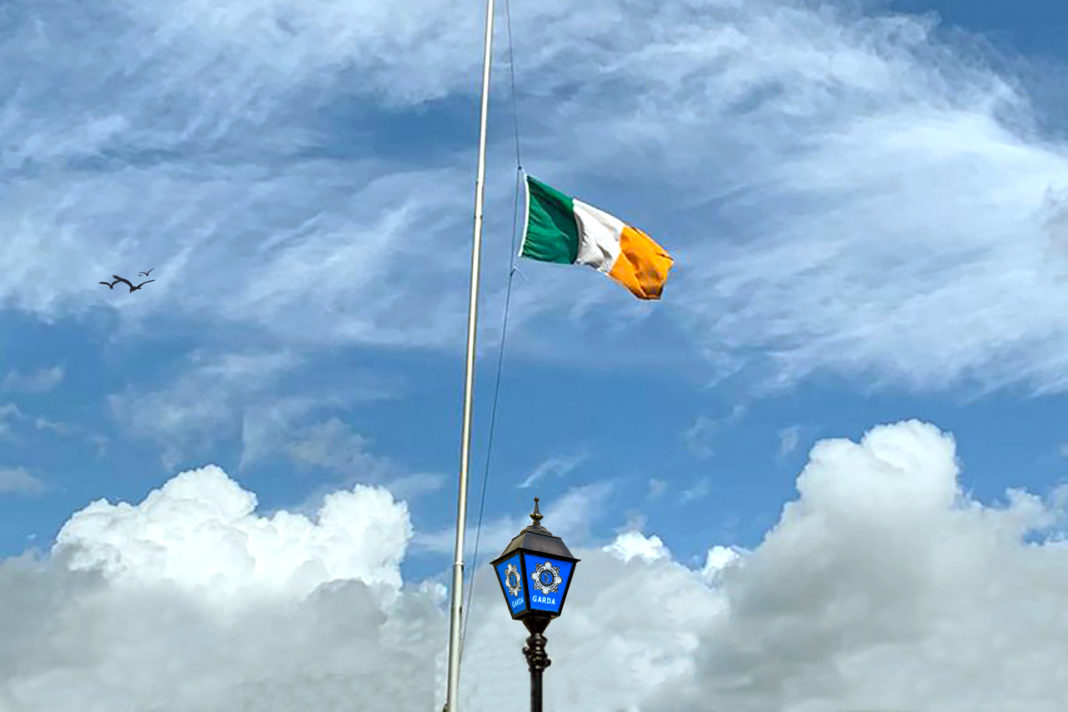The principle of policing by consent is enshrined in Irish life, with every garda essentially a community garda. Men and women like Colm Horkan make Ireland a better place.
A couple of weeks ago I witnessed something I’m confident would happen nowhere else in the world. I was heading for the Paul Street carpark, and two gardaí were chatting with a homeless man who was sitting on the pavement by the corner of Rory Gallagher Place. I know the man to say hello to, and he’s usually in good form. He doesn’t beg, but if you were decent enough to offer him a few bob, he wouldn’t embarrass you by saying no.
It was a beautiful summer’s afternoon, as Cork emerged slowly from lockdown. The street was busy and everyone seemed to be in the sort of humour you only get when the sun shines. I passed behind the gardaí and hung around to catch the tail-end of a conversation I honestly think you’d only hear in Ireland.
“And then he f*cked off, the f*cker,” said the man sitting on the ground.
“F*ck’s sake,” said the first garda, disgusted.
“What a f*cking b*llocks,” said the second garda, mildly scandalised.
“Yerra, f*ck him,” said the man on the pavement, dismissively. The first guard then did that very Irish thing where you say “Go on away so”, even though you’re actually the one leaving.
As they began to move away, the second guard casually asked, in a tone that suggested it was only a conversational afterthought, even though it clearly wasn’t: “You’re alright for everything, are you?”
The man sitting down replied that he was grand, and waved the gardaí away, telling them “Mind yeerselves, lads”, like he was giving them a blessing, adding that he’d see them later.
I have no earthly idea who they had been talking about, or what the f*cker had done to earn from the constabulary the condemnation of being “a f*cking b*llocks”, but I was struck yet again that Irish people are never truly at ease with each other unless they’ve established that the other person is sound enough to curse at without them taking offence. Now, maybe Commissioner Drew Harris mightn’t like to hear that, but if the language was bad, the tone was good-natured and friendly.
I was also struck by the easiness of the conversation. The gardaí weren’t just respectful of the man on the pavement – and they were absolutely respectful – but they treated him as an equal. You can learn all you need to know about anyone by observing their behaviour toward those in a subordinate position. (By the way, the best first date advice you’ll ever get is to watch how your date treats the waiter.) I would imagine that in most parts of the world a homeless person would be considered subordinate to the police.
The two guards I saw didn’t bully the homeless man, or condescend to him, or tell him to move on. In fact, over the years I’ve often seen gardaí interact with homeless people on the streets of Cork and I have personally never seen a guard treat a vulnerable person – even the most belligerent – with anything less than respect and gentleness. We’re all well aware that gardaí haven’t always behaved honourably – remember people like Maurice McCabe, Frank McBrearty and Dara Quigley – and we know that we can never afford to be naïve about those we entrust to police us, but I do think we are very fortunate to have a community-based police force, and one which polices by consent.
A friend of mine is retired now, but when he was a garda he always said “The first test you need to pass is the Attitude Test. If you ever want a free bed for the night, tell a guard ‘You work for me’.” Being fortunate enough to have never needed the shelter of a cell, I never chanced it, but the truth is the gardaí really do work for us. That’s because they are us. There was a clip doing the rounds a few weeks ago – you’d probably find it on YouTube – of an anti-lockdown protester (you know who I mean, and she’s had more than enough attention already, and I have enough of her legal letters) haranguing a garda with the time-honoured line “I pay your wages”. The guard replies, devastatingly, “I pay my own wages also. I pay taxes.” And, of course, she’s spot-on. Guards are taxpayers too, and citizens as much as any civilian.
While the key focus of the Black Lives Matter protests has rightly been on the institutional racism endemic in the United States, it is worth noting that the demonstrations have also focussed attention on the pervasive aggression and toxic masculinity at the heart of American policing, and the embattled sense of “us versus them” which serves to separate the police from the policed.
The past months have offered a powerful illustration of how intertwined with our community the gardaí are. Most guards I know didn’t spend the lockdown on checkpoint duty, but instead were out delivering food parcels to those who depend on them, mowing lawns and walking dogs for those who need a little help, and, in one case I witnessed, making a bit of dinner for a man into his second century.
Last week, Detective Garda Colm Horkan was shot dead in Castlerea, the 89th member of An Garda Siochána to be killed in the line of duty. By every account he was a decent, kind and brave man, and a perfect ambassador for An Garda Siochána. I heard one senior officer describe him as “a music-loving GAA fanatic who could not do enough for people”.
Of all of the tributes to Colm Horkan last week, for some reason it was the detail about him driving people home from the pub which struck me most about what a community guard he was. Someone who knew him contacted me on Twitter and simply said “He was just really sound”.
The principle of policing by consent is enshrined in Irish life, and the murder of a guard shakes us all, because gardaí are our family members, our neighbours, our friends. Men and women like Colm Horkan put their lives on the line to keep us safe and they make Ireland a better place.
Ar dheis Dé go raibh a anam.








